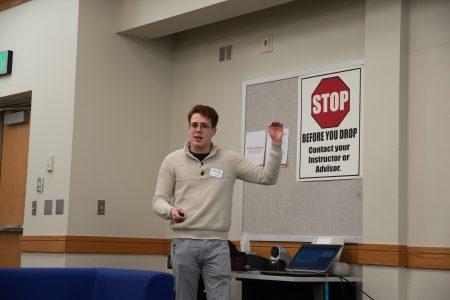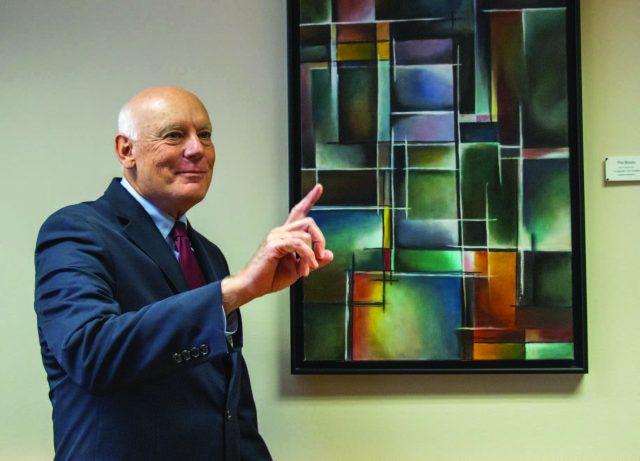| February 5, 2020 | Jill Bold | editor-in-chief |
|---|

30% of youth have experienced bullying in their life, and more than 70% of them have witnessed it. The definition of bullying has expanded from the schoolyard to the workplace and all areas online, said Dallas Area Rape Crisis Center advocate Sean Woods.
In the Toro Says No to Bull-ying event Jan. 30, students learned how to identify bullying and cyberbullying, as well as how to get help for victims and create a safe space.
Bullying exists in many of the places people traditionally feel secure. Spiritual bullying is a form of abuse that is not as widely recognized.
“Spiritual bullying is the use of spirituality to bully another individual of the same or different religion,” Woods said. Many of the students in attendance had never heard of this term.
SE student Bisade Afolabi said he was surprised to hear about spiritual bullying, but he understood how easy is it is to be vulnerable to someone in a position of power in a place of worship.
“I realized that due to believing something so much, we have a tendency to force it [religion] down other’s throats,” Afolabi said. “We can be judgmental. It makes so much sense.”
SE student Karla Coyote agreed that spiritual bullying is a new concept to her.
“I didn’t think that could actually happen, that was very new to me,” Coyote said.
Other forms of bullying pop up in the workplace in the form of toxic people, said Woods. Documenting that abuse is one way to fight this. When that bully is a supervisor, that can make it harder to talk about the problem, but it must be addressed.
“If you don’t feel like you can have that kind of honest communication with your supervisor, I strongly advise you to find a new place of work,” Woods said.
Growing up witnessing or experiencing bullying can lead to depression, low-self esteem, poor grades and a high likelihood of becoming a bully, according to Woods. He presented evidence regarding a correlation between bullying and some of the mass shootings that afflict the nation.
“A lot of these people who are committing very violent crimes have been victims of bullies,” Woods said.
He said factors that can help lessen the effect of bullying include learning conflict resolution, empowering females with men and boys as allies and showing respect and empathy.
“We need protective factors,” Woods said. “We need more people connected today.”
He said social media must be used responsibly to prevent bullying.
“We need to tone down our speech to each other online,” Woods said.




























